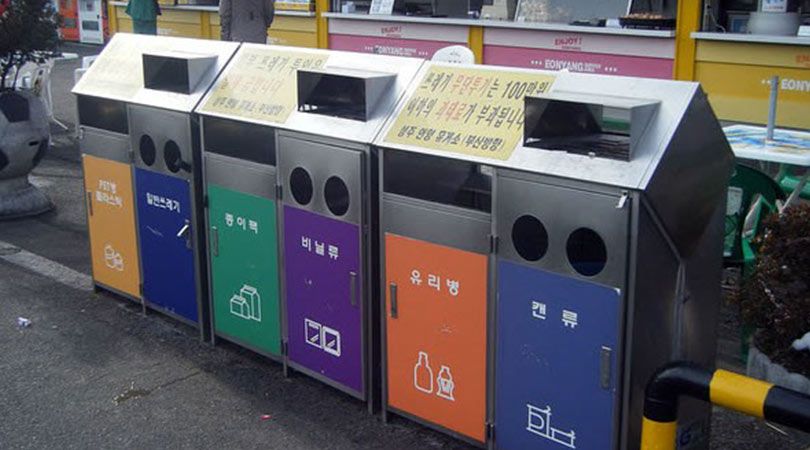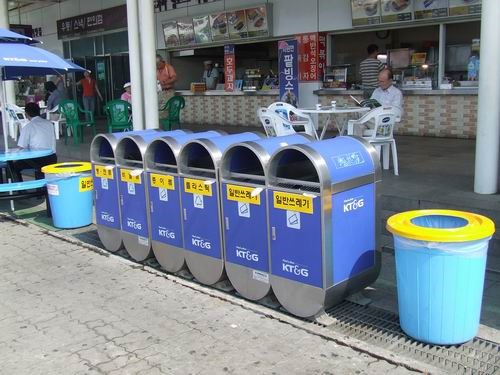Adventures Abroad – Recycling in South Korea

When I moved to Gwangju, South Korea in the summer of 2016, I expected to face many of the challenges that normally come with living in a new country. I expected to be challenged by the language gap, learning about a new culture, and starting a new job. I was not, however, expecting to be challenged by the waste disposal system of my new country.
The trouble all began when I realized I could not go to a store and buy a box of trash bags like I would back home. Instead, they are sold individually behind the counter like cigarettes, which forced me to do some charades to get one as I don’t speak Korean. They are also quite expensive at around $1.50 apiece. These bags are specialized to your specific district in the city and are strictly for only non-recyclables. This is important as there are hefty fines imposed on anyone caught not recycling properly.

After almost a year living here, I am no longer intimidated by the Korean recycling system, but rather, I am excited to bring the passion for recycling that I have experienced here back home with me.
